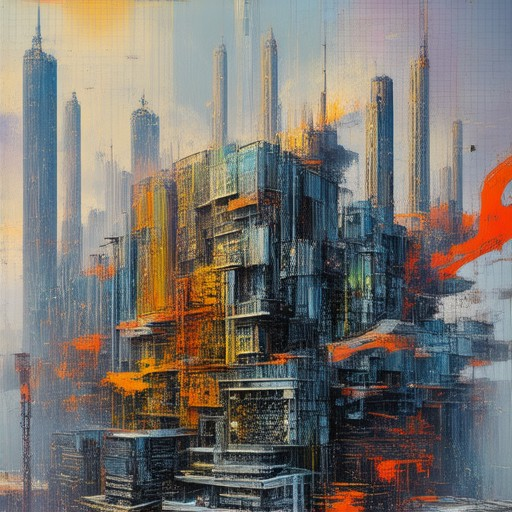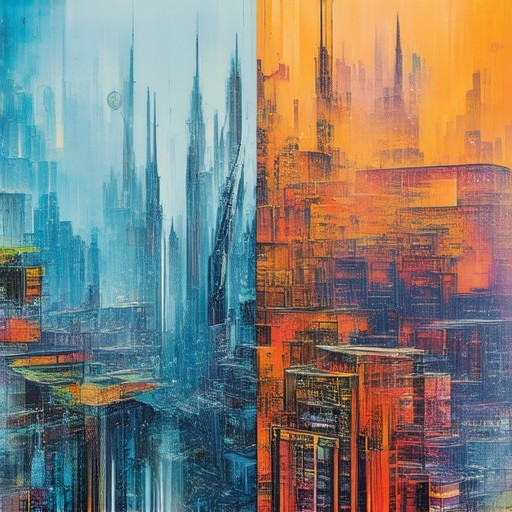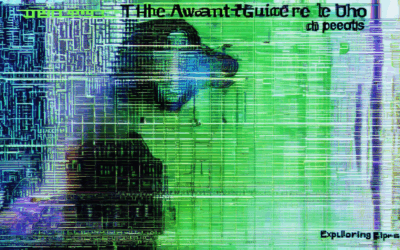Experimental hip-hop albums have long been at the forefront of music innovation, blending genres, pushing boundaries, and redefining what it means to tell a story through sound. These groundbreaking works often challenge traditional norms, experimenting with unconventional production techniques, unique vocal styles, and bold lyrical narratives. From the early days of the genre to its current resurgence, experimental hip-hop albums have consistently pushed creative limits, earning critical acclaim and fostering a dedicated fanbase. Whether it’s the avant-garde beats of J Dilla’s *Donuts* or the genre-blurring sonics of Flying Lotus’ *Cosmology*, these albums represent a commitment to artistry over formulaic conventions. As the genre continues to evolve, the legacy of these trailblazing records remains undeniable, inspiring new generations to explore the possibilities of music.
Key Takeaways
- Pushes Boundaries: Experimental hip-hop albums redefine music by blending genres and using cutting-edge production techniques.
- Genre-Blending Innovator: These albums merge hip-hop with jazz, electronic, and other styles, creating unique and groundbreaking sounds.
- Conceptual Depth: Often centered around themes, they offer rich storytelling and social commentary.
- Artistic Freedom: Embracing creativity, they take risks and explore new sonic territories.
- Cultural Impact: Challenging norms, they spark conversations on identity and society.
- Sound Design Pioneer: Features futuristic textures while staying rooted in rhythm and blues.
- Notable Creations: Includes works like Jinsang’s “Autumn Leaves,” The Cinematic Orchestra’s “To Build a Home,” and Flying Lotus’s “You.”
- Explore Further: Discover more at platforms like Complex, Pitchfork, and Vulture.

What Makes an Album Considered ‘Experimental’ in the Hip-Hop Genre?
An experimental hip-hop album is defined by its deviation from conventional structures, embracing innovation, and challenging traditional norms. Here are the key characteristics that set them apart:
- Unique Production Techniques: Experimental albums often feature intricate beats that blend multiple genres, such as jazz, electronic, or world music. Artists like Flying Lotus and Jinsang utilize these techniques to create sonically unique experiences.
- Complex Lyrical Themes: These albums typically explore deep, abstract, or philosophical themes, often delving into social commentary or existential questions. Kendrick Lamar’s “Mr. Nice Time” from “To Pimp a Butterfly” exemplifies this approach.
- Diverse Collaborations: Featuring artists from varied backgrounds, these albums incorporate global sounds and perspectives. Kanye West’s “Yeezus” stands out for its eclectic collaborations and bold artistic vision.
- Innovative Visual and Storytelling Elements: Albums like “Yeezus” combine striking visuals with their musical innovation, creating a cohesive, immersive experience that challenges traditional expectations.
- Genre Blending: By merging hip-hop with electronic, jazz, or other genres, these albums break free from genre constraints. Bon Iver’s self-titled album successfully merges lo-fi beats with soulful vocals.
- Unconventional Structures: Tracklists may defy traditional song structures, offering non-linear narratives or experimental compositions. Kanye West’s “Yeezus” is noted for its unconventional approach.
- Pushing Musical Boundaries: Experimental albums often experiment with sound design and new instruments, as seen in Flying Lotus’ work, which frequently incorporates electronic and ambient elements.
- Challenging Traditional Norms: These albums reject mainstream conventions, opting instead for artistic freedom and innovation. “Yeezus” exemplifies this by redefining what hip-hop can be.
For further exploration of experimental hip-hop, visit AbstractHipHop.com , a platform dedicated to uncovering the genre’s most unconventional sounds and ideas.
What Defines an Experimental Hip-Hop Album?
An experimental hip-hop album is a groundbreaking musical project that pushes boundaries, redefines genres, and challenges traditional norms. These albums often blur the lines between hip-hop, jazz, electronic, and other genres, creating unique soundscapes that resonate with forward-thinking listeners.
Key Characteristics of Experimental Hip-Hop Albums:
- Unique Production Techniques
Experimental hip-hop albums frequently feature innovative production techniques. Artists may incorporate live instrumentation, unconventional sampling, digital effects, and modular synths to create sonically rich and immersive experiences. - Blending Genres
These albums often draw inspiration from diverse musical styles, such as trip-hop, jazz, ambient music, and even classical compositions. The fusion of these elements creates a sound that feels both familiar and groundbreaking. - Conceptual Themes
Many experimental hip-hop albums revolve around a central theme or concept. Whether it’s social commentary, philosophical exploration, or personal journey, the narrative ties the music to its message. - Artistic Freedom
Experimentation is at the core of these albums. Artists take creative risks, embracing spontaneity and imperfection to craft something truly unique. This freedom allows for the exploration of new sonic territories and storytelling methods. - Cultural Impact
Experimental hip-hop albums often challenge societal norms and push cultural boundaries. They serve as a platform for addressing contemporary issues and sparking conversations about identity, politics, and artistry. - Innovation in Sound Design
From glitchy beats to otherworldly textures, these albums experiment with sound design to create atmospheres that feel futuristic yet deeply rooted in rhythm and blues traditions.
Notable Examples:
- Jinsang’s Autumn Leaves : A blend of jazz, hip-hop, and electronica that showcases organic instrumentation and layered production.
- The Cinematic Orchestra’s To Build a Home : A cinematic experience that merges hip-hop with orchestral arrangements and ambient soundscapes.
- ** Flying Lotus’s You **: A mix of trap, jazz, and experimental electronics that highlights genre-blending and artistic vision.
These albums exemplify the essence of experimentation in hip-hop, proving that innovation is at the heart of this dynamic genre.

What Characteristics Define Experimental Hip-Hop Albums?
Experimental hip-hop albums are a unique breed within the music genre, characterized by their innovative approach to sound, style, and storytelling. These albums often push boundaries, combining traditional hip-hop elements with unconventional styles and techniques. Here are the key characteristics that set them apart:
- Genre Blending: Experimental hip-hop albums frequently merge hip-hop with other genres like jazz, funk, electronic, and spoken word. Artists experiment with sounds beyond the typical beats and rhymes, creating something entirely new.
- Innovative Production: Production plays a central role in experimental hip-hop. Artists use cutting-edge techniques, unique instruments, and intricate layering to create sonically groundbreaking tracks.
- Storytelling and Conceptual Depth: Many experimental albums focus on complex narratives or themes, offering a deeper dive into social issues, personal journeys, or abstract concepts through their lyrics and music.
- Avant-Garde Techniques: These albums often embrace avant-garde approaches, incorporating non-traditional structures, free-form rhythms, and unexpected musical elements.
- Cultural and Social Commentary: Experimental hip-hop albums often serve as platforms for addressing societal issues, challenging norms, and sparking conversations through their music and lyrics.
These albums redefine what it means to be hip-hop, pushing boundaries and inspiring new creative directions in the genre. Whether you’re a seasoned fan or new to the scene, there’s something uniquely captivating about the innovation found in experimental hip-hop albums.
Explore more about the latest trends and artists in the experimental hip-hop scene on Abstract Hip Hop , your go-to source for all things avant-garde in music and culture.

What Defines an Experimental Hip-Hop Album?
An experimental hip-hop album is a groundbreaking musical project that pushes boundaries, redefines genres, and challenges traditional norms. These albums often blur the lines between hip-hop, jazz, electronic, and other genres, creating unique soundscapes that resonate with forward-thinking listeners.
Key Characteristics of Experimental Hip-Hop Albums:
- Unique Production Techniques
Experimental hip-hop albums frequently feature innovative production techniques. Artists may incorporate live instrumentation, unconventional sampling, digital effects, and modular synths to create sonically rich and immersive experiences. - Blending Genres
These albums often draw inspiration from diverse musical styles, such as trip-hop, jazz, ambient music, and even classical compositions. The fusion of these elements creates a sound that feels both familiar and groundbreaking. - Conceptual Themes
Many experimental hip-hop albums revolve around a central theme or concept. Whether it’s social commentary, philosophical exploration, or personal journey, the narrative ties the music to its message. - Artistic Freedom
Experimentation is at the core of these albums. Artists take creative risks, embracing spontaneity and imperfection to craft something truly unique. This freedom allows for the exploration of new sonic territories and storytelling methods. - Cultural Impact
Experimental hip-hop albums often challenge societal norms and push cultural boundaries. They serve as a platform for addressing contemporary issues and sparking conversations about identity, politics, and artistry. - Innovation in Sound Design
From glitchy beats to otherworldly textures, these albums experiment with sound design to create atmospheres that feel futuristic yet deeply rooted in rhythm and blues traditions.
Notable Examples:
- Jinsang’s Autumn Leaves : A blend of jazz, hip-hop, and electronica that showcases organic instrumentation and layered production.
- The Cinematic Orchestra’s To Build a Home : A cinematic experience that merges hip-hop with orchestral arrangements and ambient soundscapes.
- ** Flying Lotus’s You **: A mix of trap, jazz, and experimental electronics that highlights genre-blending and artistic vision.
These albums exemplify the essence of experimentation in hip-hop, proving that innovation is at the heart of this dynamic genre.
What Characteristics Define Experimental Hip-Hop Albums?
Experimental hip-hop albums are a unique breed within the music genre, characterized by their innovative approach to sound, style, and storytelling. These albums often push boundaries, combining traditional hip-hop elements with unconventional styles and techniques. Here are the key characteristics that set them apart:
- Genre Blending: Experimental hip-hop albums frequently merge hip-hop with other genres like jazz, funk, electronic, and spoken word. Artists experiment with sounds beyond the typical beats and rhymes, creating something entirely new.
- Innovative Production: Production plays a central role in experimental hip-hop. Artists use cutting-edge techniques, unique instruments, and intricate layering to create sonically groundbreaking tracks.
- Storytelling and Conceptual Depth: Many experimental albums focus on complex narratives or themes, offering a deeper dive into social issues, personal journeys, or abstract concepts through their lyrics and music.
- Avant-Garde Techniques: These albums often embrace avant-garde approaches, incorporating non-traditional structures, free-form rhythms, and unexpected musical elements.
- Cultural and Social Commentary: Experimental hip-hop albums often serve as platforms for addressing societal issues, challenging norms, and sparking conversations through their music and lyrics.
These albums redefine what it means to be hip-hop, pushing boundaries and inspiring new creative directions in the genre. Whether you’re a seasoned fan or new to the scene, there’s something uniquely captivating about the innovation found in experimental hip-hop albums.
Explore more about the latest trends and artists in the experimental hip-hop scene on Abstract Hip Hop , your go-to source for all things avant-garde in music and culture.

Unique Traits of Experimental Hip-Hop Albums
Experimental hip-hop albums push boundaries by blending genres, experimenting with sounds, and challenging traditional structures. Here are the defining characteristics that set them apart:
- Genre-Blending: These albums often merge hip-hop with elements from jazz, electronic music, spoken word, funk, and even classical influences, creating unique sonic landscapes.
- Artistic Innovation: Artists experiment with production techniques, sampling, and songwriting to create something entirely new and original, often eschewing conventional structures.
- Storytelling and Conceptual Themes: Many experimental hip-hop albums focus on deep narratives or conceptual themes, offering a visual or emotional journey rather than just beats and lyrics.
- Social Commentary: These albums frequently tackle complex topics like societal issues, political commentary, or personal struggles, providing a platform for meaningful dialogue.
- Technical Complexity: With intricate beats, layered samples, and innovative arrangements, experimental hip-hop albums often demand active listening and appreciation of musical craftsmanship.
Competitors in this space include platforms like Complex , Pitchfork , and Vulture , which often cover the latest in avant-garde hip-hop and related genres.
Abstract Hip Hop is proud to champion these groundbreaking albums, showcasing the endless possibilities of this ever-evolving art form. From abstract hip-hop to experimental sounds, we celebrate the artists pushing boundaries and redefining music.





0 Comments